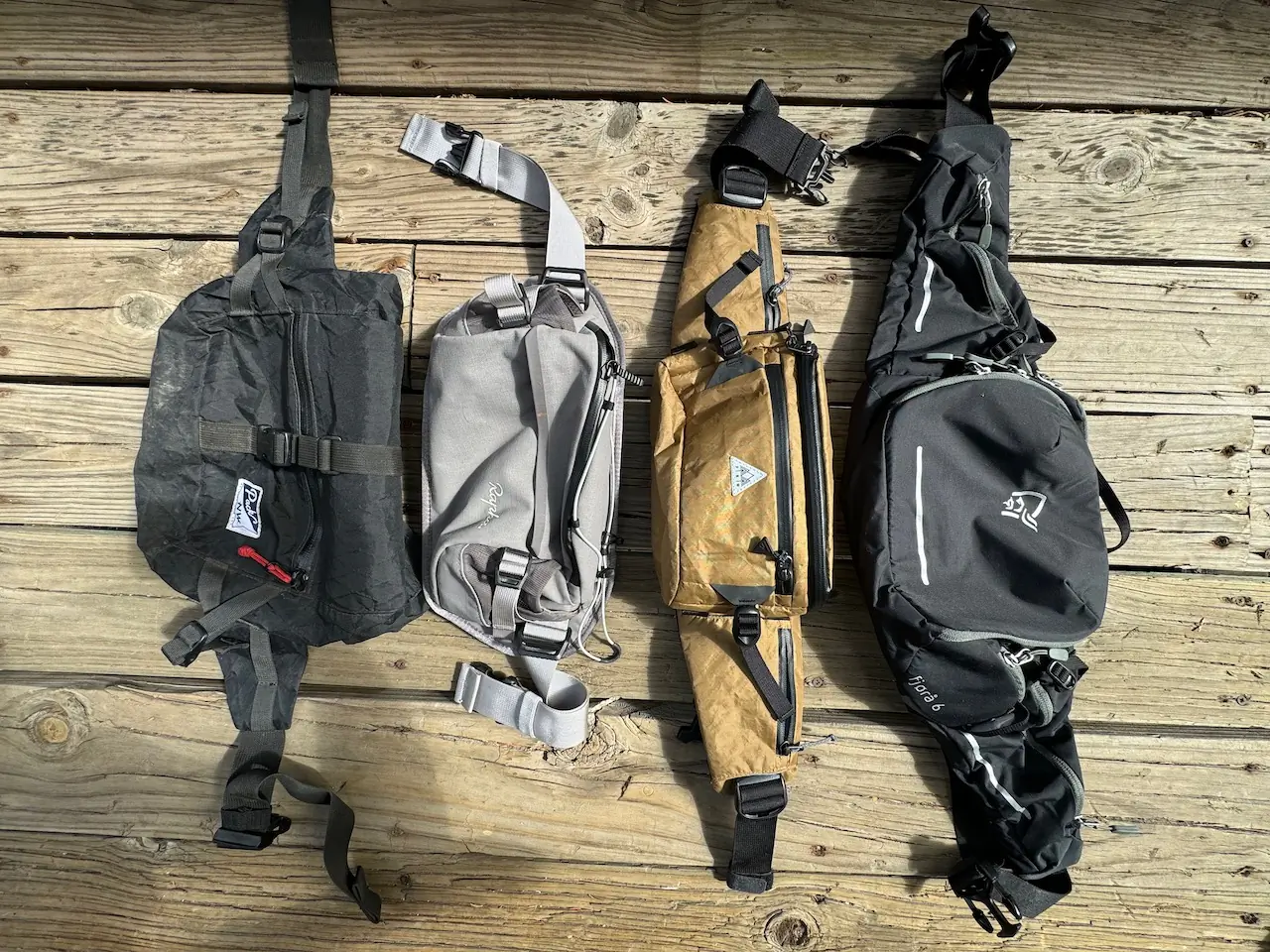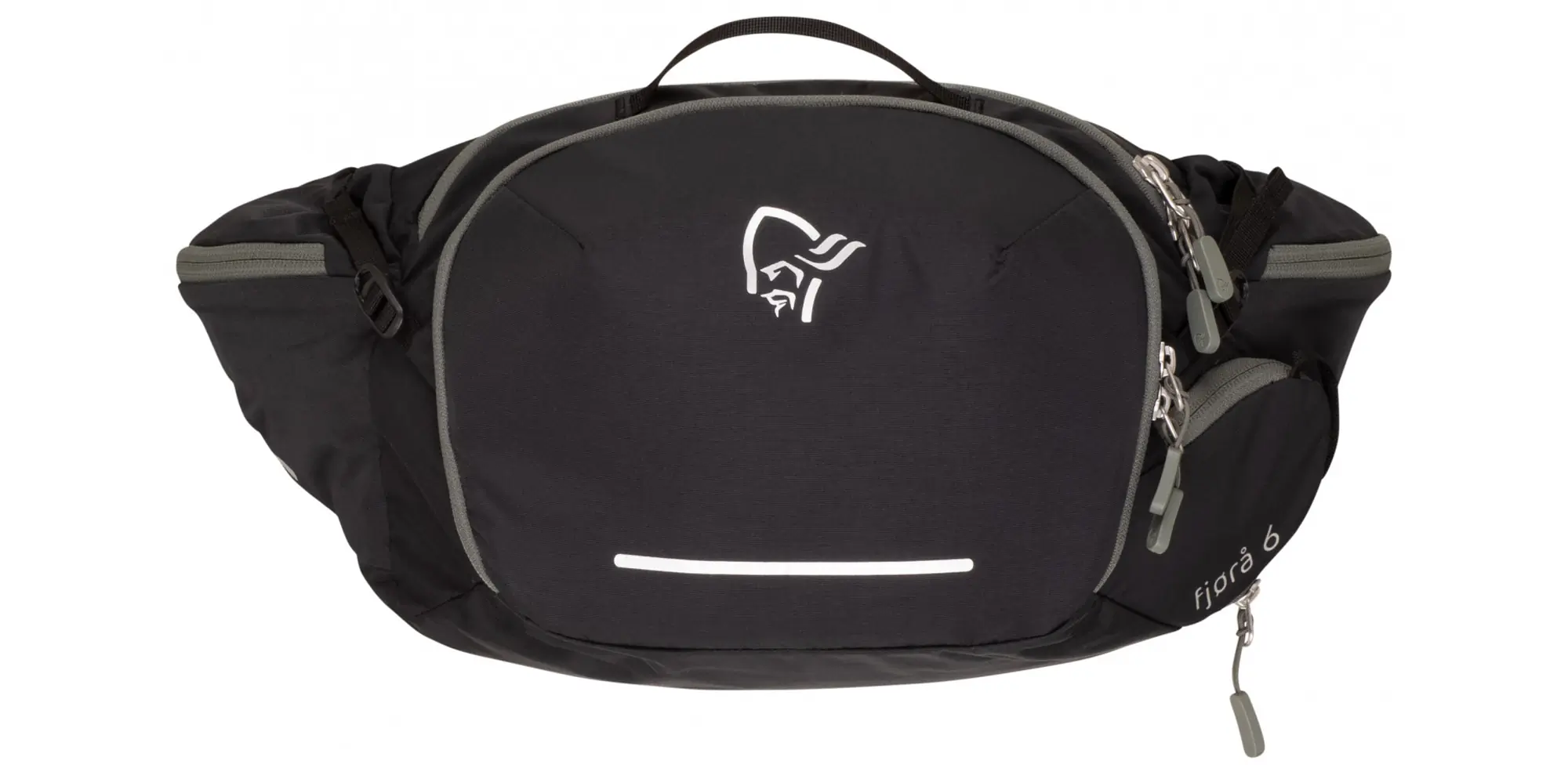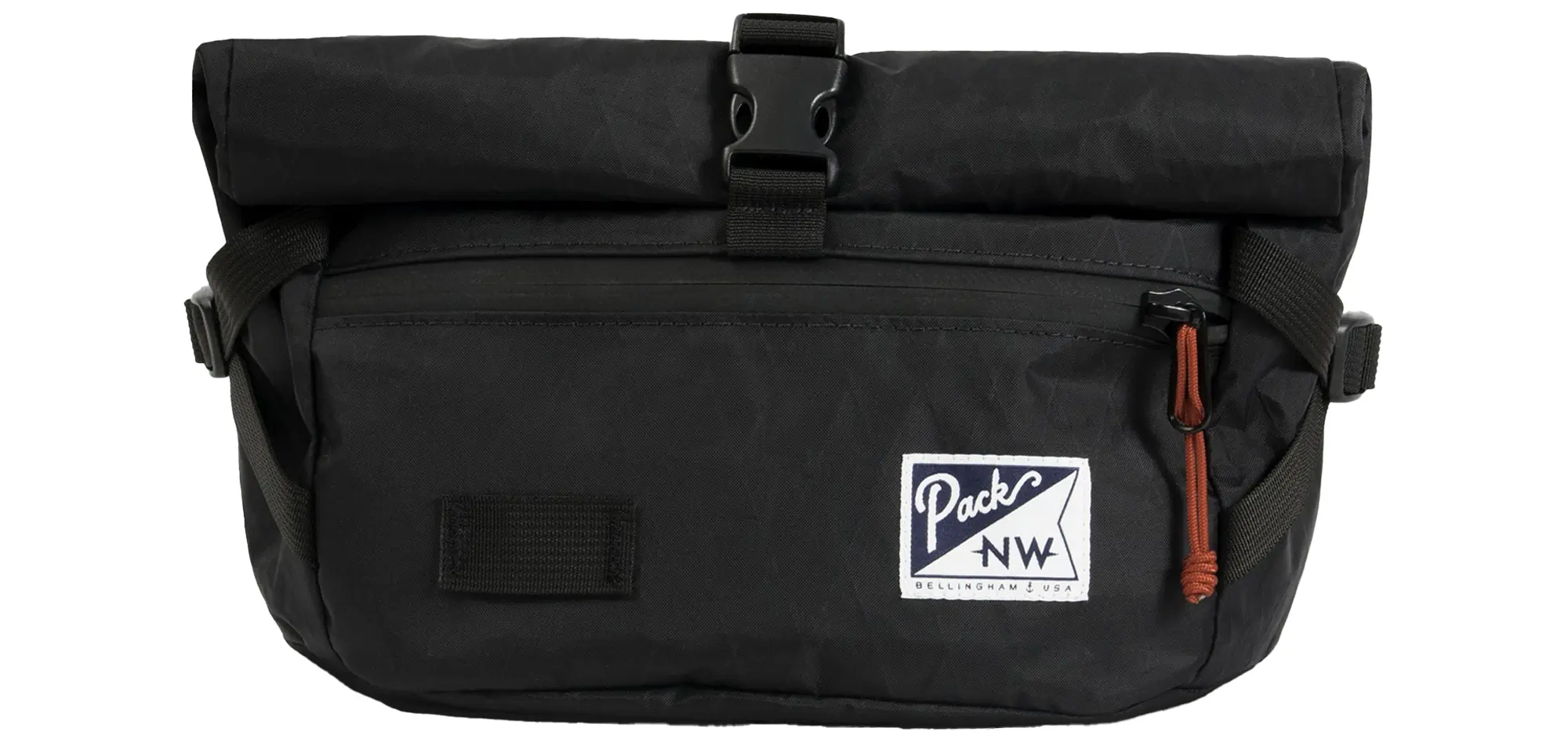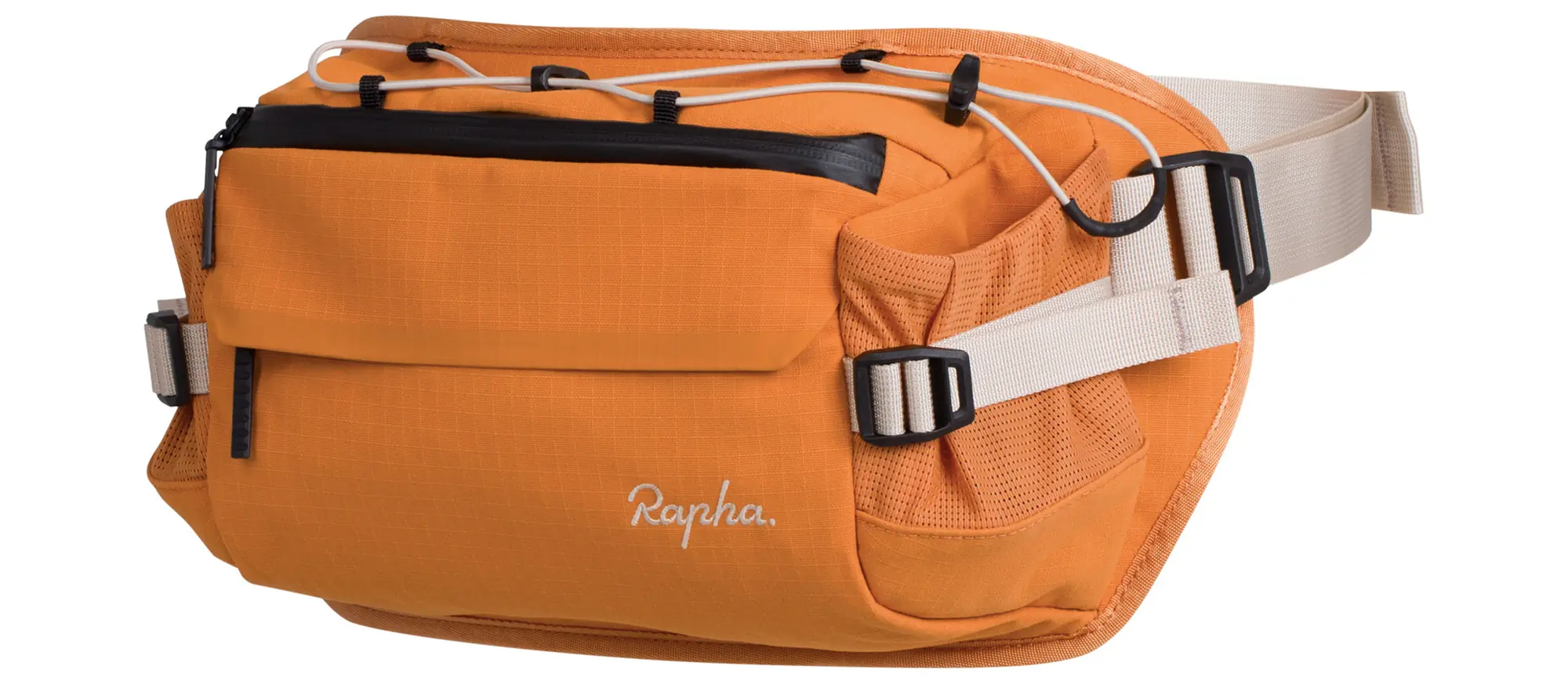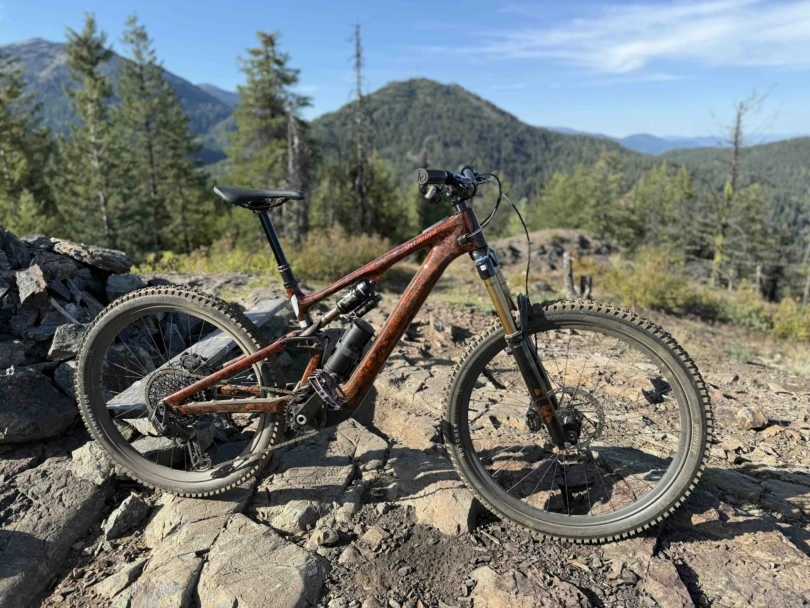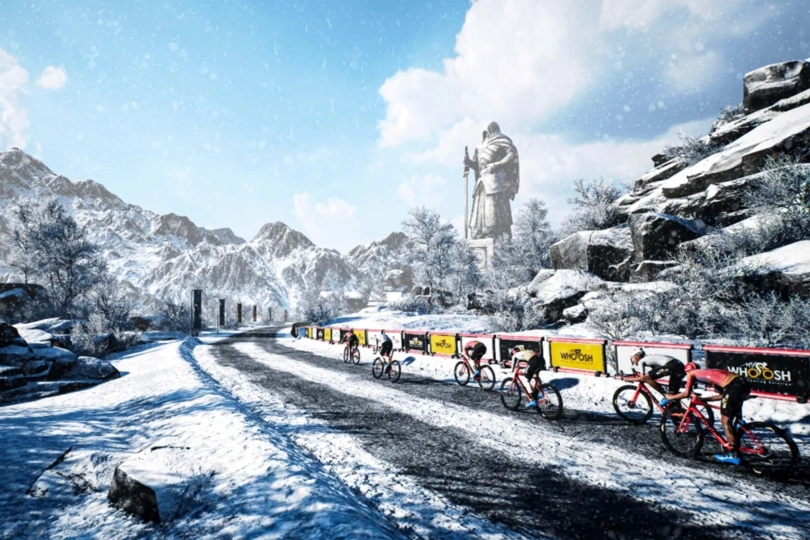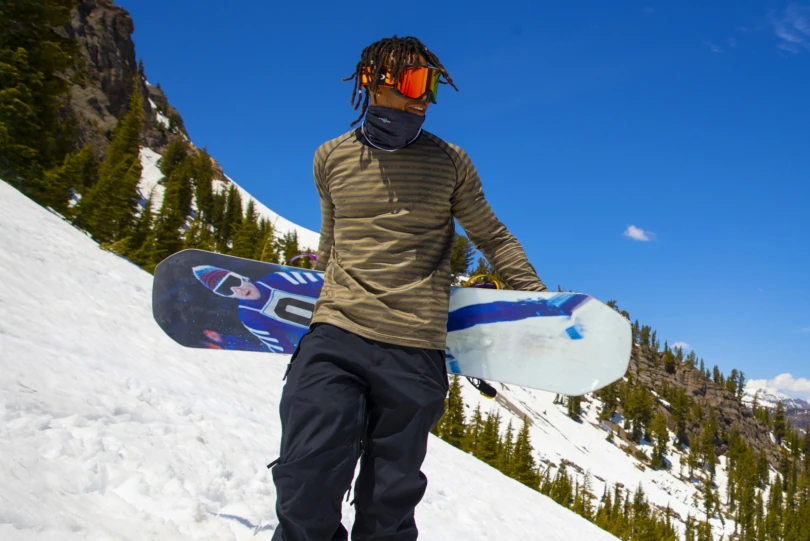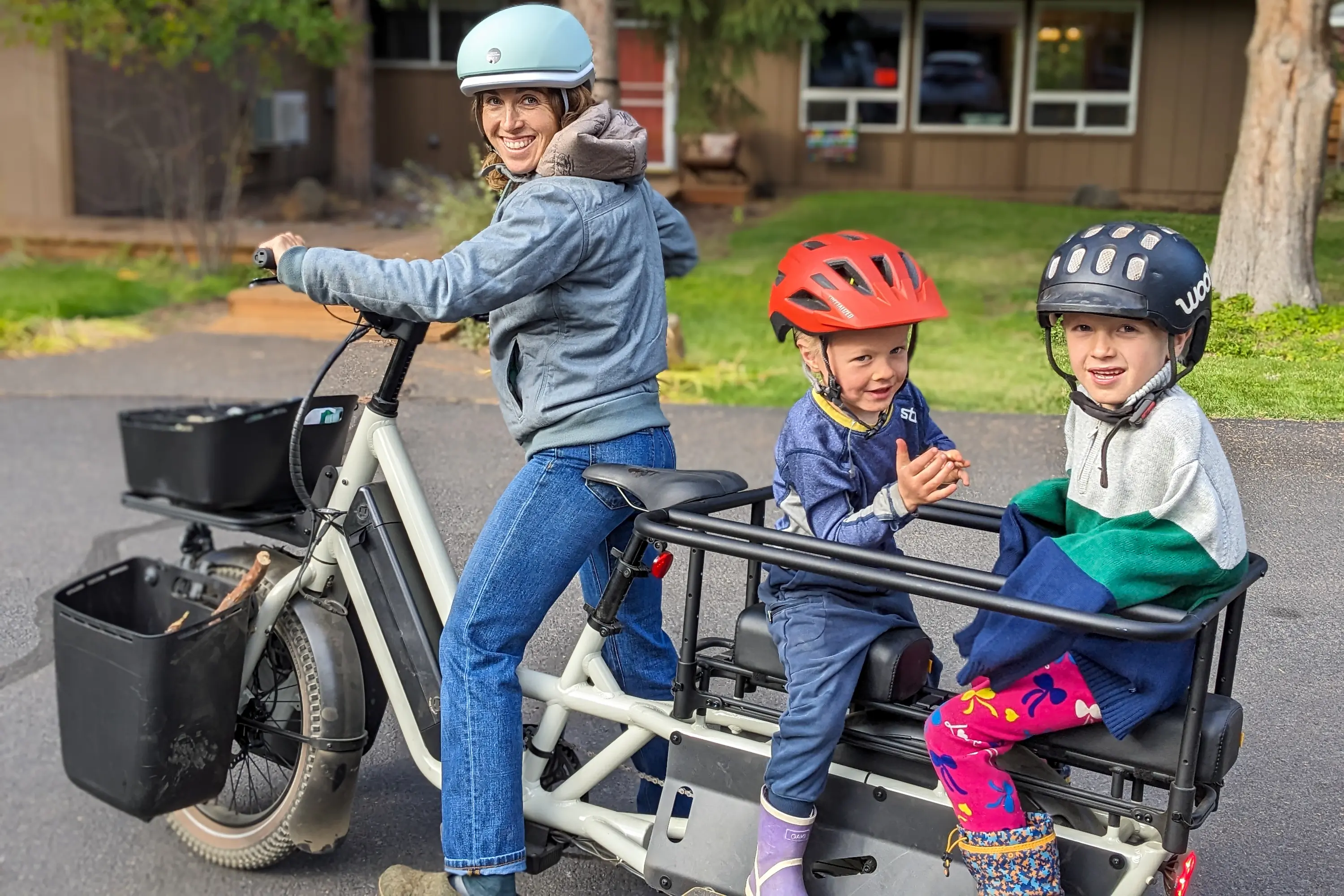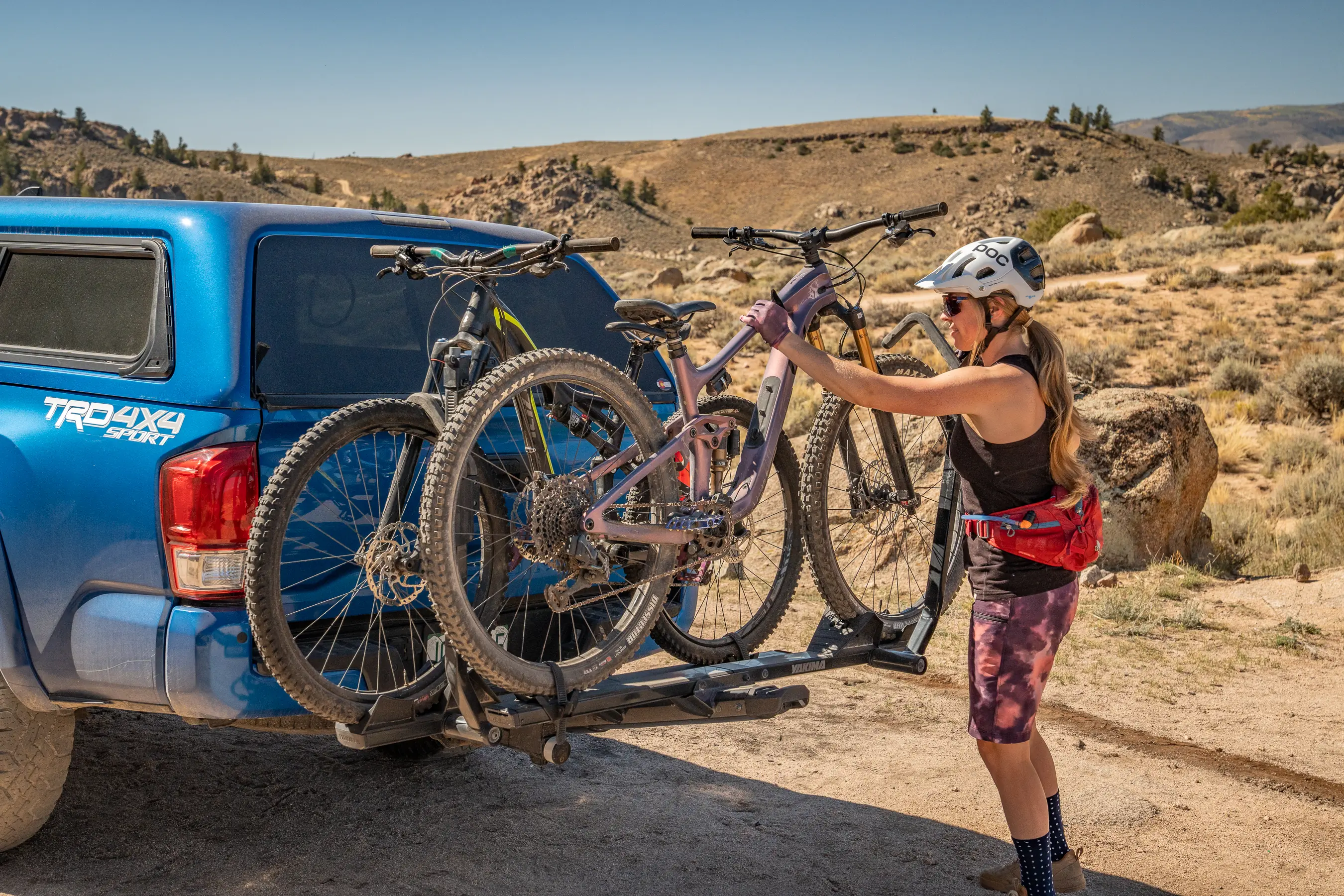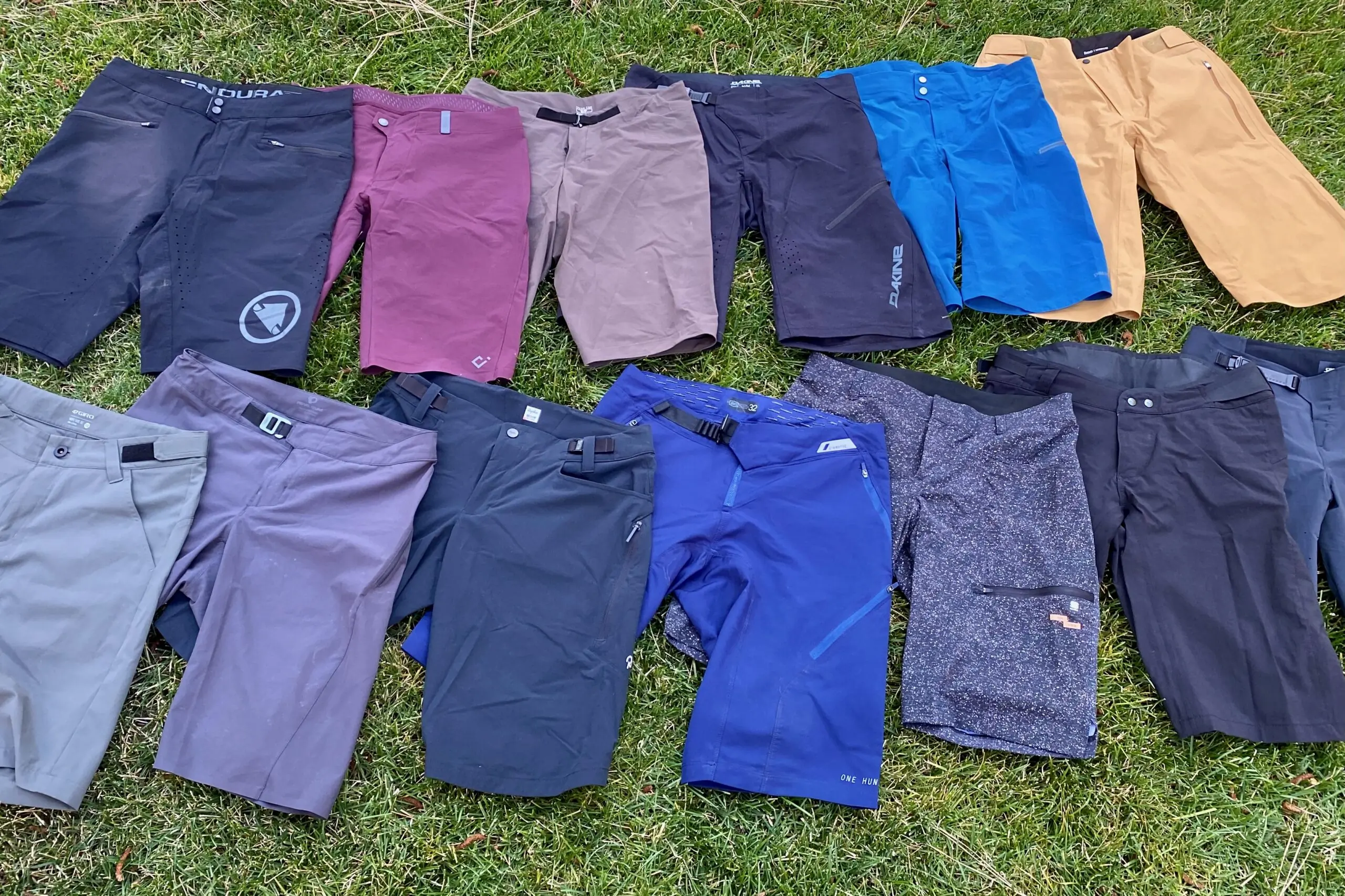I waited way too long to succumb to mountain bike hip packs. For years, I hoped the fanny pack fad would fade. Coming from a downhill racing background, I shunned any pack at all costs. I’d strap everything to my bike and stuff my pockets with tools and snacks.
I’d do anything to avoid something bouncing around on my back and throwing off my balance. But in all honesty, I was primarily afraid of looking like a dork with a fanny pack.
I was wrong, and it took me too long to realize it. For one thing, we call them “hip packs” now. Also, they’re fantastic. They’ve been gaining popularity since they started appearing in the Enduro World Series. Mountain bike brands caught on, and there are more offerings today than you could shake a handlebar at.
Big companies, small companies, and tiny companies are all making them. Over the last 8 months, I’ve honed in on four models from independent brands that stood out from the crowd: PNW’s Rover Hip Pack, Rapha’s MTB Trail Hip Pack, PackNW’s Ridgeline Roll-top, and Norrøna’s Fjørå econyl195 6L hip pack.
I tested them all in the rapidly changing conditions that fall and spring bring around Vail, Colo., and the Moab Desert. It wasn’t easy to pick my favorite among this gaggle of packs. Each feature or characteristic made it stand out from others on the market. But if you forced me to pick a winner, here’s how I’d do it.
In short: For better or worse, mountain bike hip packs are here to stay. With so many options on the market, finding the right one for your riding style is tough. I sifted through dozens of fanny packs and put four promising models from Norrøna, PNW, Rapha, and PackNW to the test over 5 months of riding. The rubric? It’s fivefold. After an exhausting stint of trail miles, I could pick my favorite for a day-in-day-out riding, but I couldn’t help but recommend two others for specific user groups.
You can find out more about the Best Mountain Bike Hip Packs in our comprehensive buyer’s guide.
L
- Price: $149
- Volume: 6L
- Weight: 402g
- Materials: 70Dx320D recycled nylon econyl and 70DX150D recycled polyester lining
Pros
- Comfortable, bounce-free ride
- Lots of volume and storage
Cons
- Not the best option for carrying extra layers
- Price: $105 (Add $15 for water bottle holster)
- Volume: 4 L
- Weight: 255g
- Materials: X-Pac VX 21 or Ecopak EPX200
Pros
- Expandable volume
- Detachable water bottle holsters can be purchased separately
Cons
- A little bouncy when expanded
- Price: $79
- Volume: 2.7 L
- Weight: 311g
- Materials: Tri-layer sailcloth fabric made from 100% recycled polyester
Pros
- Bounce-free ride
- Great price point
Cons
- Small volume for the essentials only
- Strap loosens slightly
- Price: $90
- Volume: 3 lL
- Weight: 291g
- Materials: Recycled nylon
Pros
- Excellent extra layer carry
- Effective internal organization
Cons
- Somewhat bouncy ride
- No hip strap wings
- Water bottle pockets don’t keep bottles locked in
Mountain Bike Hip Pack Review
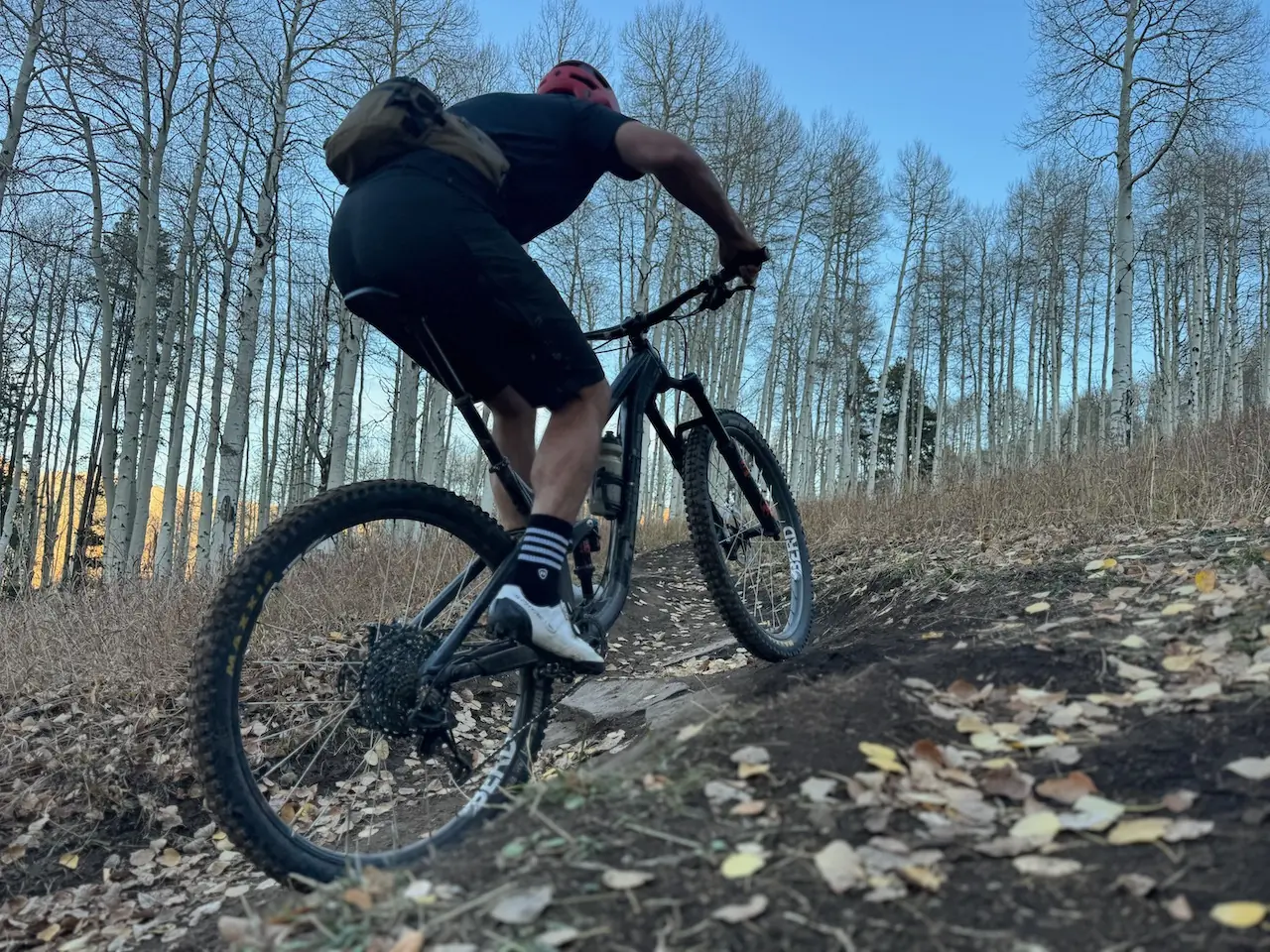
A flood of hip packs on the market means great and poor options exist. Many of the hip packs that I’ve used have been thoroughly unimpressive. My wishlist for a perfect mountain bike hip pack is straightforward:
- It needs to ride well without bounce.
- It must accommodate a small list of necessities and an extra layer for shoulder seasons.
- It should accommodate extra water.
- It needs to withstand a proper mountain bike thrashing.
- It must be comfortable on long rides.
Bounce Factor
Bounce testing is fun. I lapped some of the chunkiest terrain that Vail has to offer to pinpoint which packs stayed rock solid on my hips and which kept their contents locked in. Hip pack bounce can also flare up while hammering uphill, which can quickly disrupt rhythm.
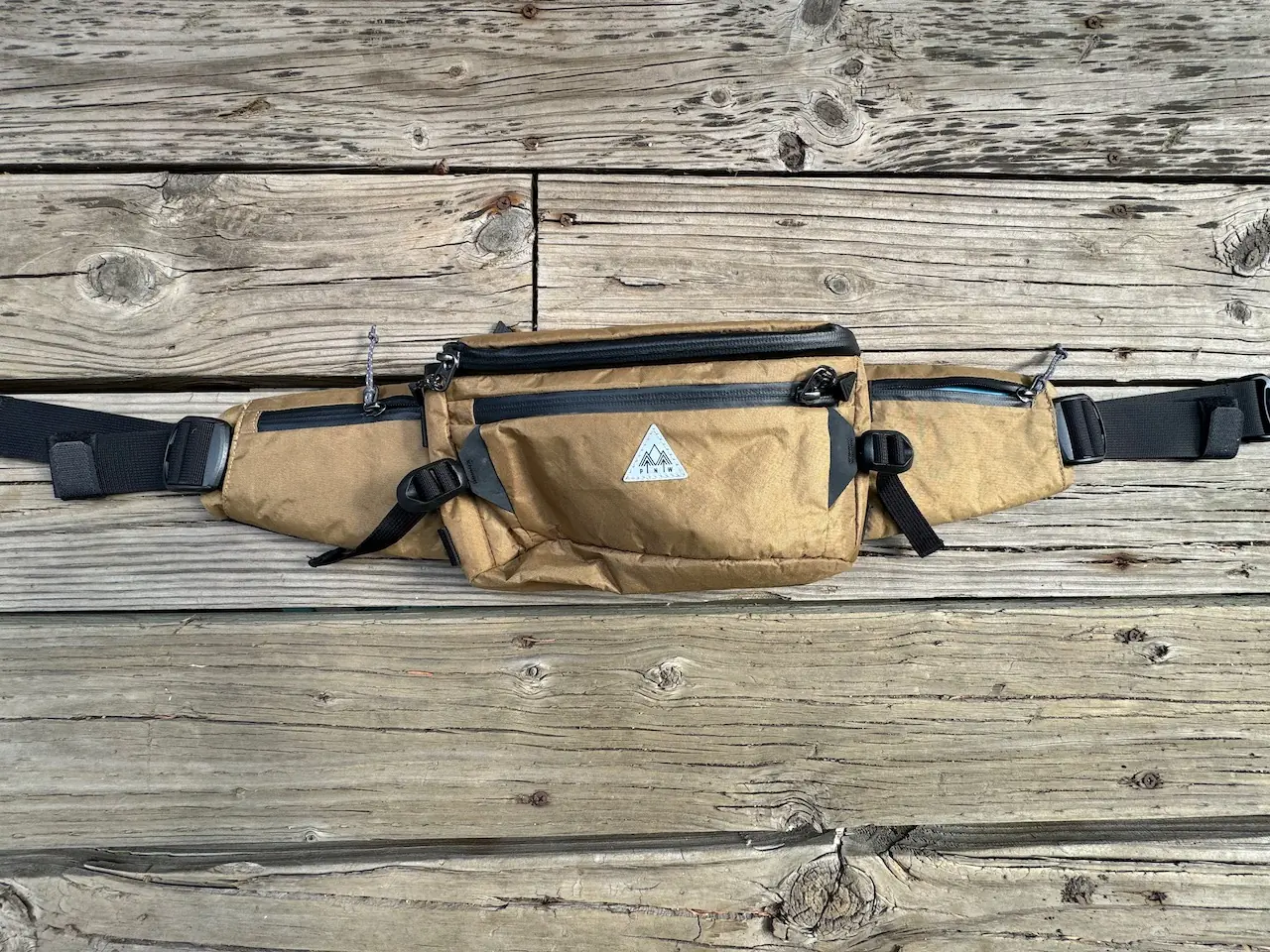



PNW’s Rover Hip Pack stood out from the crowd in rough terrain. It’s clearly a hip pack built for freeriding. Two characteristics contribute to that. First, it’s a small volume pack at 2.7 L, so it’s already closer to wearing nothing than any of the other three. But I’ve used small packs that bounced everywhere, too.
The hip strap “wings” are what lock the pack in place. They’re burlier than those found on many other packs, which adds stability. They’re also adjustable, so finding the right fit for a broad spectrum of body sizes was easy.
My one qualm with the Rover’s ride quality was that the hip strap sometimes lost tension when I cinched the adjusters down. A little more friction would keep it tighter.
Norrøna’s Fjørå also thrived through the bounce test. It has a much bigger footprint, or backprint, than the other packs, and that extra surface area against my body added a lot of stability to the ride. Like the Rover, it has enormous, padded wings that wrap around my waist for added stability without cutting into my hips when I really cinched them down.
Gear Carry
The weather changes fast in late fall in Colorado, and the temperature swings are real. I struggled to get out the door without an extra layer on, at least until I warmed up. I grabbed a hooded jacket for that purpose.
But even though it’s breathable, I eventually overheated once I started grinding up a trail and needed to stash it in or on my pack. For longer rides in questionable weather, I often toted a rain jacket.
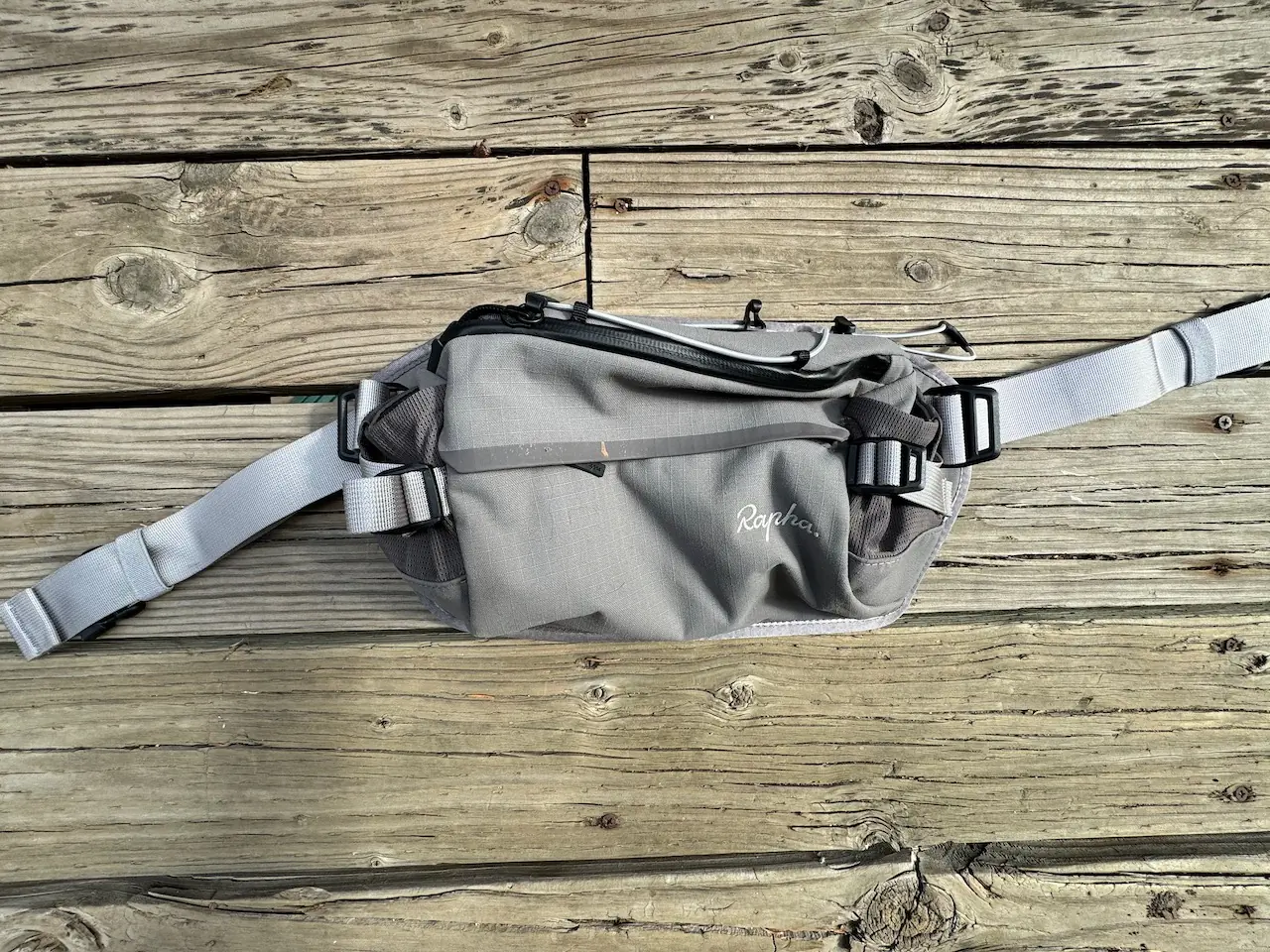



Rapha’s Trail Hip Pack stood out from the other three packs for carrying an extra layer. It’s on the smaller side regarding volume, but it sports an adjustable bungee on top that works perfectly for a rolled-up jacket. Even better, the hook closure made it quick and easy to transition.
The inside is similarly elegant. I appreciated the stretchy strap sewn into the back of the pack that secured the daily necessities — a multitool, CO2 cartridge, tire levers, tube, and a Clif Bar.
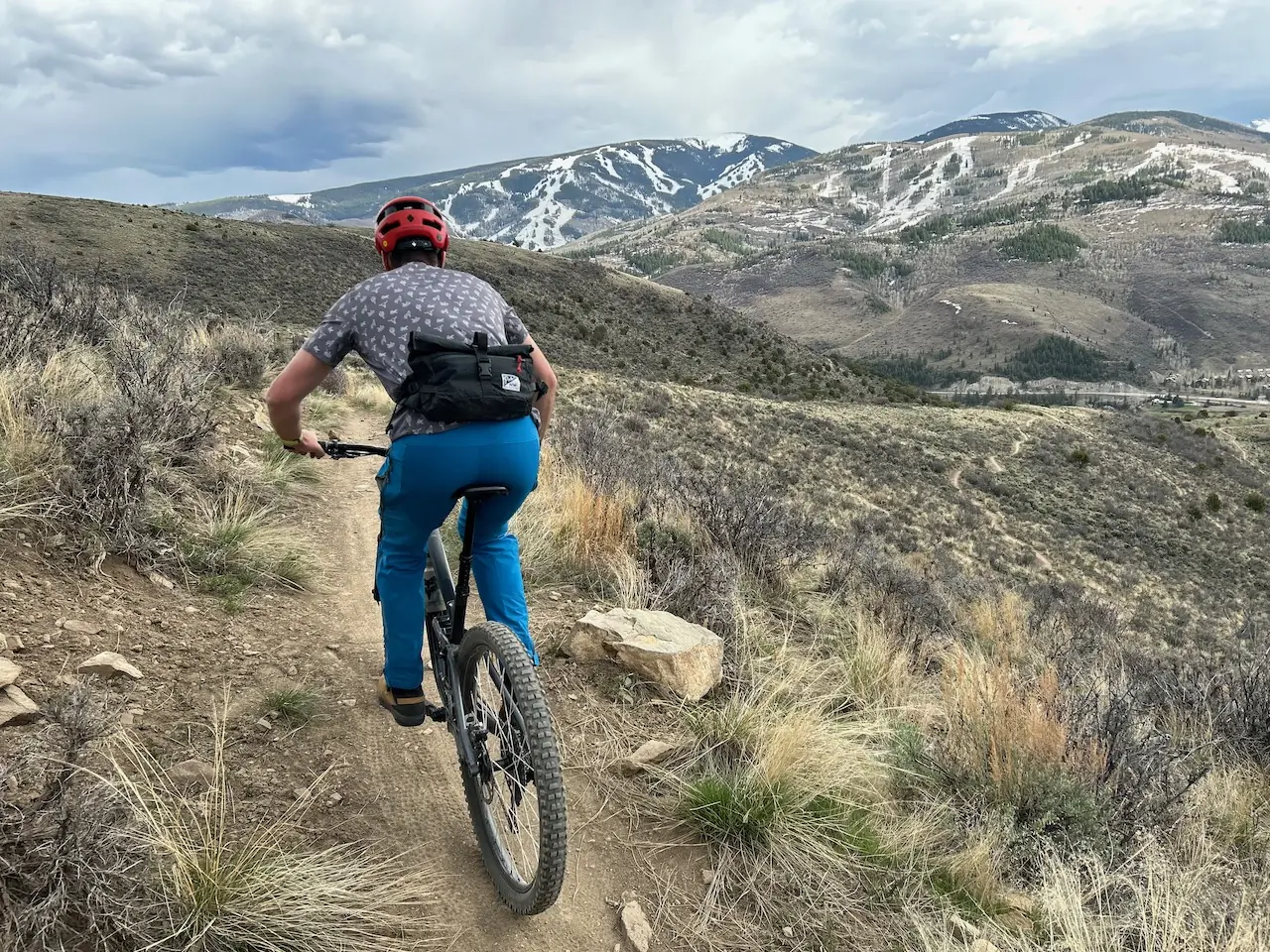



Thanks to its roll-top design, the PackNW Ridgeline Roll-top is also uniquely spacious. I liked carrying just the essentials without having a bunch of loose fabric flapping around and then expanding it to hold extra layers or another water bottle. I continued to be impressed with how much I could stuff in there. Need to carry home a six-pack from the local brewery? It fits.
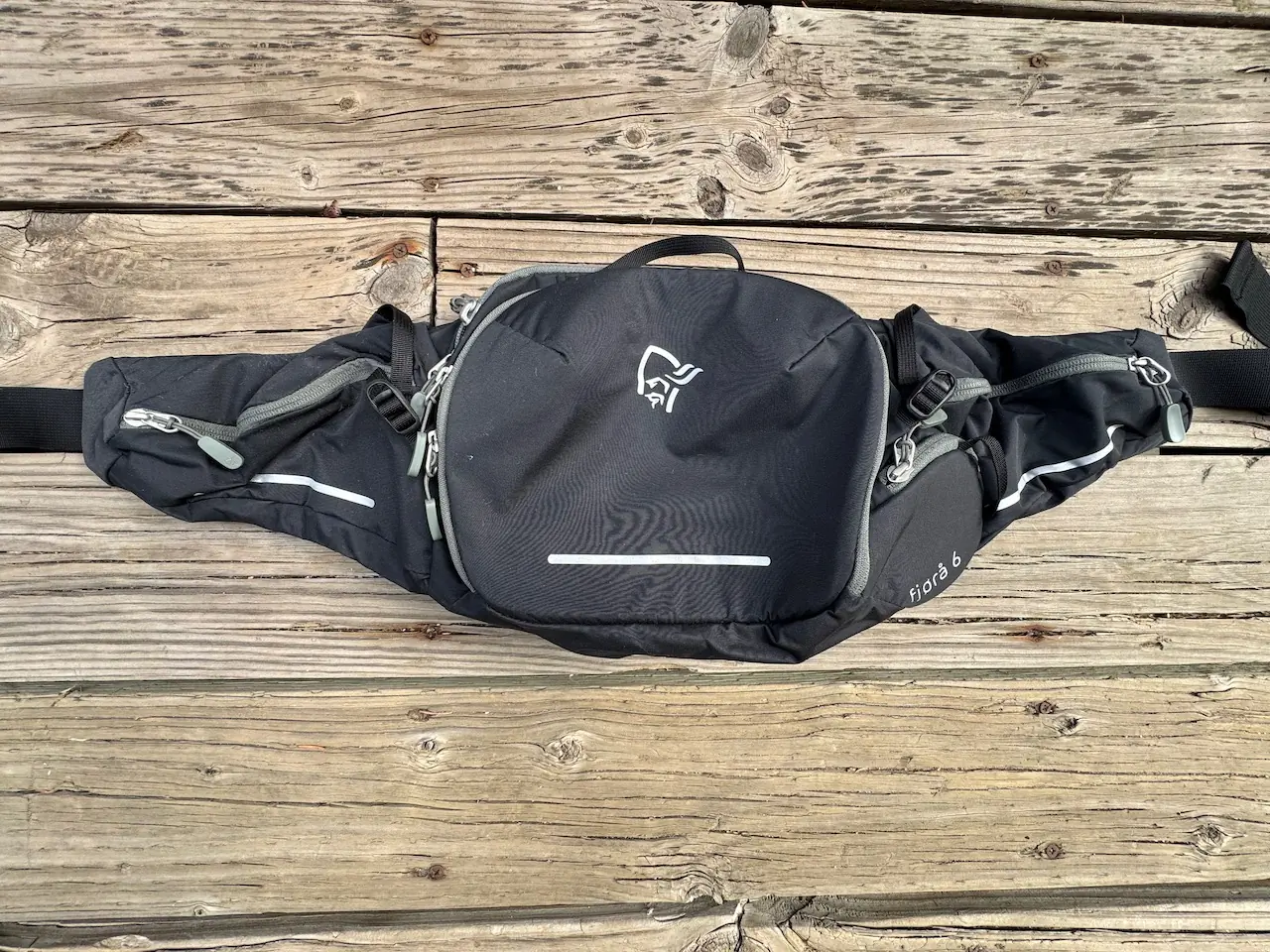



The Norrona Fjørå has the largest stated capacity of any of these bags at 6 L, but it’s divided up between a few different compartments within the pack’s main body. The largest pocket fit my windbreaker and grid fleece and even bulkier insulation like a thin puffy.
I liked the organization options on this one, too. It was easy to pack for long days on the trail and keep gear and snacks organized for quick access. Was it overkill for shorter days in good weather? Definitely, but I wasn’t bothered by the extra space.
Miniature tire pumps come in a wide variety of shapes and sizes. A lot of riders are able to carry a miniature pump on their frame, as keeping it in a hip pack can be a challenge. While probably all hip packs on the market can accommodate the newer “micro-pumps,” all of the packs in this test accommodated my shock pump and a standard mini-pump.
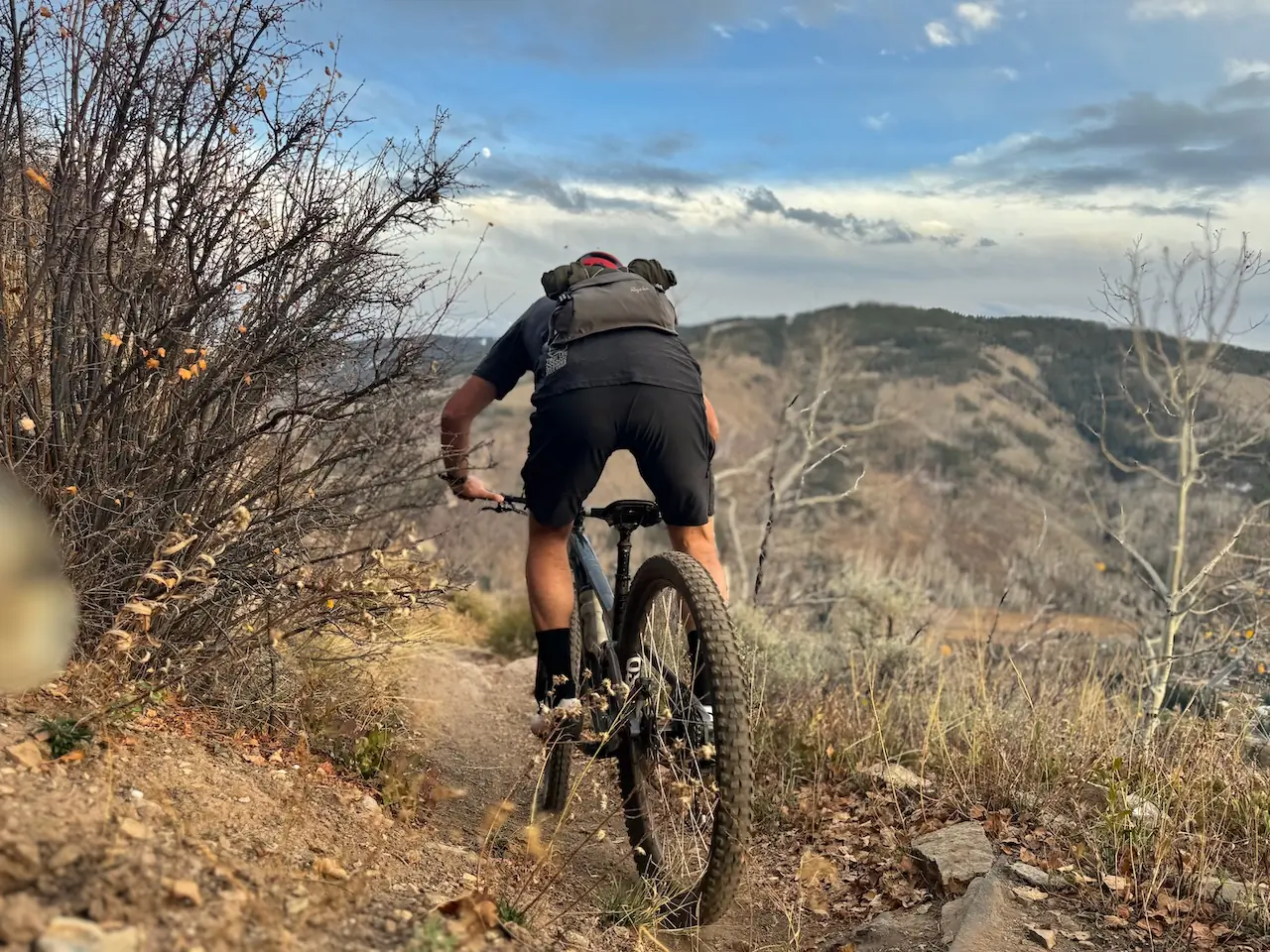



I occasionally carry knee pads in my pack when I’m riding nasty downhill trails. My knee pads fit in the Norrøna Fjørå and the PackNW Ridgeline Roll-Top. The Rapha MTB Trail Hip Pack almost accommodated them with the bungees, but I found them difficult to secure.
Extra Water
Carrying extra water is another place where hip packs traditionally suffer. Water is big, heavy, and bouncy to carry. Fortunately, bike frames are a great place to store water bottles, and I very rarely find myself needing more water in my day-to-day riding regimen than I can carry on my frame. However, carrying more water becomes critical for longer rides, especially in the desert. So, it’s vital for hip packs to at least accommodate extra water when warranted.
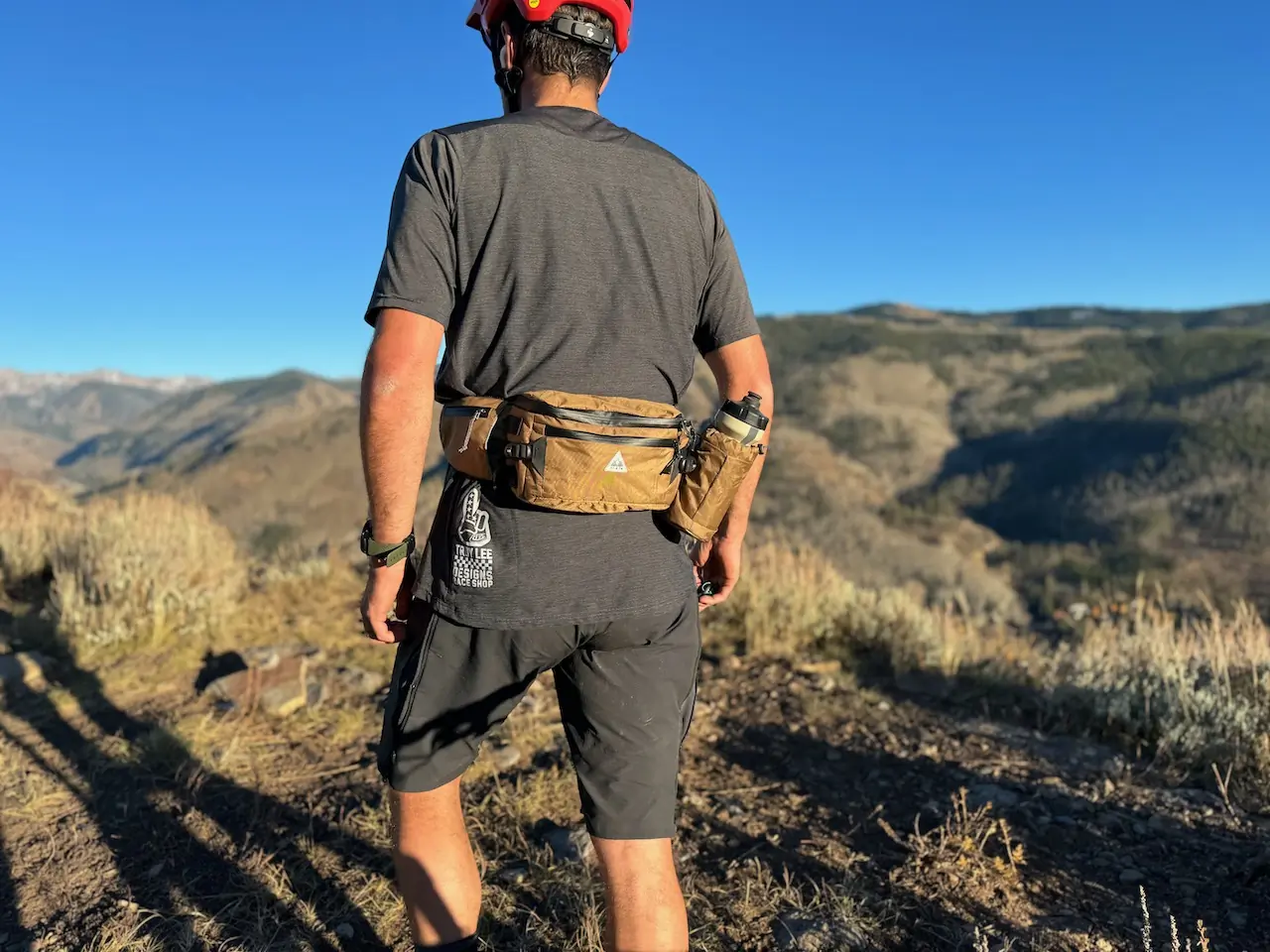



There are models that specifically cater to this need with custom water bladders. Of the packs in this test, the PackNW Ridgeline Roll Top and PNW Rovers’ modular water bottle holsters are tied for the win.
The Rover comes with one, but both packs can accept two lightweight holsters that accommodate a standard water bottle. They’re bouncy, but I loved being able to remove them for my daily grind when I didn’t need the additional hydration.
Norrona’s Fjørå gets an honorable mention in this category because it has both the volume and a bottle-shaped horizontal pocket that can accommodate an additional small water bottle, like a miniature Nalgene with a screw top lid.
Hip Pack Comfort
In my experience, the primary comfort issue is needing to overtighten the hip straps to mitigate the bounce factor. Well-designed packs with comfortable and sturdy contact points typically require less cinching. While none of these packs felt uncomfortable while riding, two packs stood out to me: the PNW Rover and the Norrøna Fjørå.
The Rover is so small, compact, and comfortable that it disappeared on my lower back. I also really liked it, and now I prefer its hip strap layout.
The straps tighten from the sides near the wings instead of at the buckle in front, meaning the excess straps don’t annoyingly dangle and flap around between your legs. Rapha’s MTB Trail Pack follows the same formula.
Norrøna’s Fjørå, as I mentioned in the bounce factor section, has a large back panel with significant surface area. It’s also plentifully padded with dense foam on the back panel and on the hip wings. It fit and rode very comfortably on my body.
That luxurious padding also made it the warmest pack tested here. It wasn’t backpack-warm, but it was still pretty warm for a hip pack.
Thrash Testing
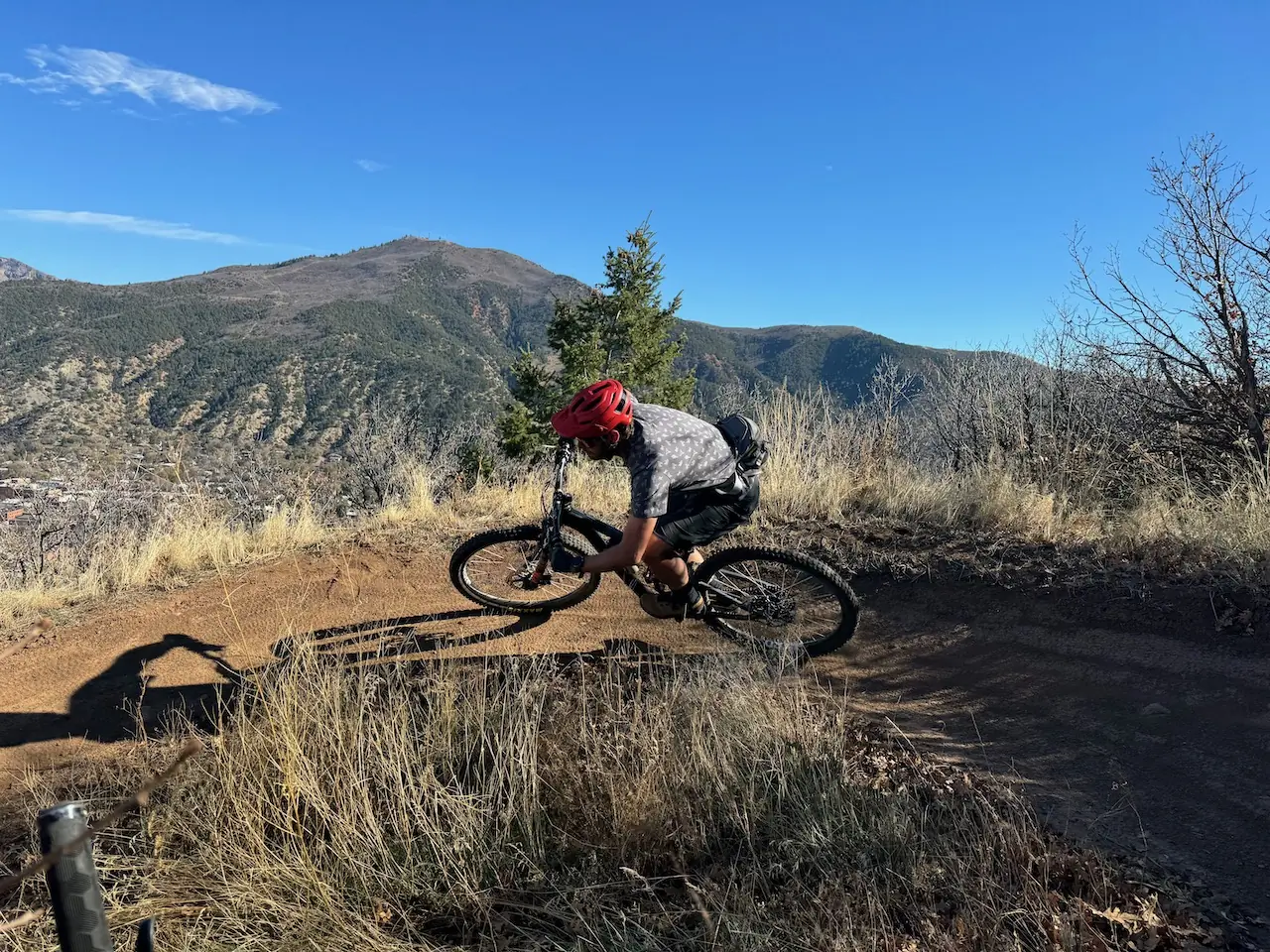



Mountain biking is hard on gear, even when you keep the rubber side down. Thankfully, none of these companies were messing around when they specified fabrics, buckles, and zippers. Like other good mountain biking gear, these four bags all felt plentifully durable. Fortunately, I only crash-tested one of them, but I didn’t go easy on the other three.
While none look factory-fresh, I couldn’t spot worrisome wear or failures on any of them. They’re all made of high-quality materials and with evident attention to detail. For that reason, I couldn’t land a true champion in this category — they all met expectations.
Mountain Bike Hip Pack: Conclusion
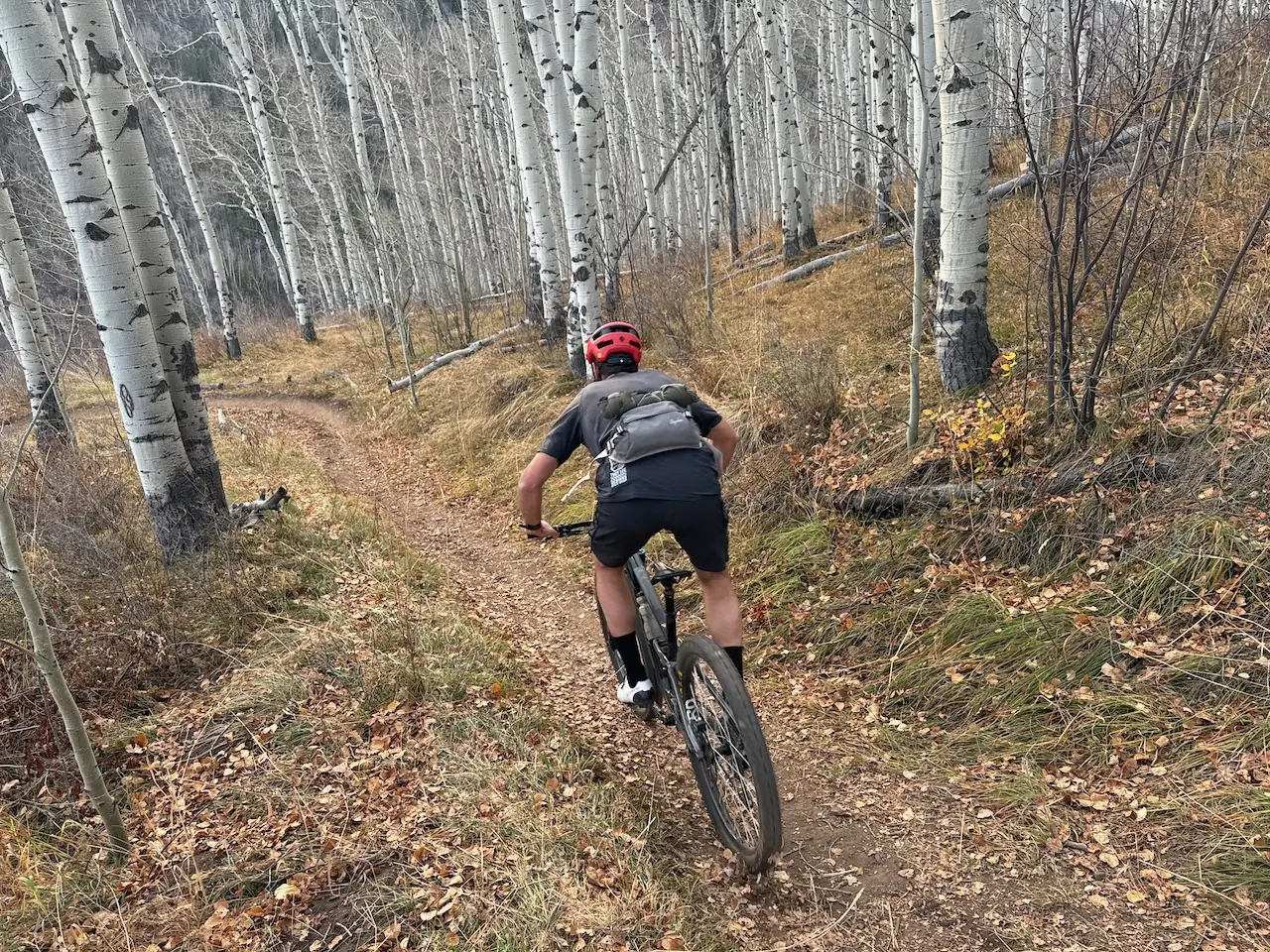



If I had to create a Frankenstein monster of a mountain bike hip pack from the features of these four bags, I’d choose the chassis of the Norrøna Fjørå, the removable water bottle holsters of the PNW Rover, the auxiliary bungee straps of Rapha’s Trail Hip Pack, and the expanding roll-top of the Pack NW Ridgeline. That would also be a horrendously over-featured yard sale of a hip pack.
Like most pieces of gear, the best hip pack depends on your riding style. Riders looking for a minimalist, enduro/downhill-friendly companion would be best suited to the PNW Rover for its tight package, modular water bottle carry, and bounce-free ride. Crashing on it won’t feel as terrible either, at least on your wallet, because it’s by far the cheapest option.
Adventure riders needing a pack that grows to accommodate extra layers, water, or whatever else will probably find the best match in the PackNW Ridgeline Roll Top. It also happens to be the pack I keep reaching for on long gravel rides and bikepacking in changing weather, where I know I’ll need a few extra layers and more food than my frame bags can handle.
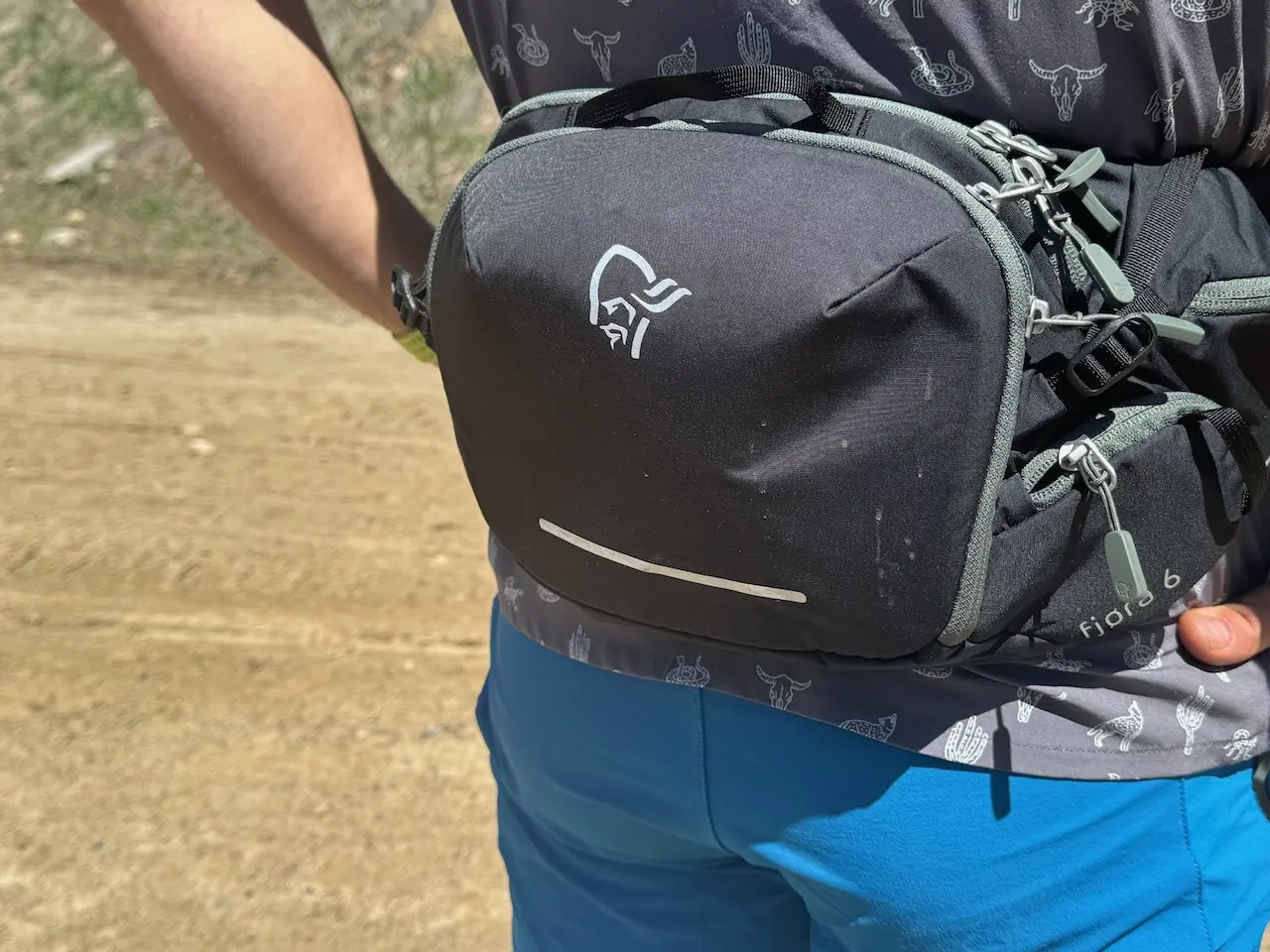



But If I had to pick one of these packs to be my only hip pack for day-in, day-out mountain biking, it would be the Norrøna Fjørå. The volume, ride characteristics, and lack of bounce make it a phenomenally well-rounded hip pack for trail riding in all conditions.
